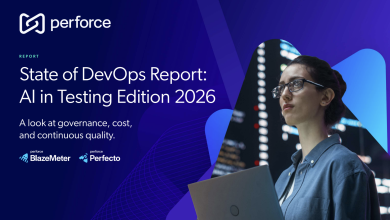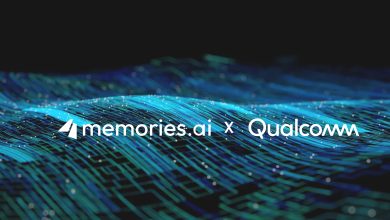Artificial Intelligence has passed through many waves of excitement. First came the fascination with chatbots and assistants, then the explosion of large language models capable of answering almost anything with uncanny fluency. But beneath the surface of these general-purpose breakthroughs, a more silent revolution has begun, one that may ultimately prove transformative for industries. This is the rise of Vertical AI: deep, domain-specific platforms designed to master the complexity and regulation of a single industry.
If general-purpose AI is a Swiss army knife, Vertical AI is a surgical tool. Nowhere is this shift more visible than in the food industry, where NotCo, a company born in Santiago and now a global technology player, has built Giuseppe AI, the first vertical foundational model for the consumer-packaged goods sector.
The story of Giuseppe is more than a NotCo success story. It is a case study in how regulated industries can embrace artificial intelligence not only as a novelty, but as the backbone of innovation.
From Analog to AI-Powered Innovation
When NotCo was founded in 2015, food innovation was still anchored in trial-and-error methods that had barely changed since the mid-20th century. R&D labs leaned on intuition and outdated academic papers with little standardization and even less data reuse. While Pharma had already begun adopting advanced technology to accelerate discovery, food remained stubbornly analog.
NotCo saw the connection between AI and what we eat early on. Much as OpenAI recognized that knowledge work could be reshaped by foundational models, NotCo realized food itself could be reimagined through AI. The vision was simple, but ambitious: build a system that understands food from its molecular and structural level, and then use that system to create better, healthier, and more sustainable products.
That system became Giuseppe AI, the first AI platform trained on a proprietary dataset of food and consumable properties, collected over a decade of experimentation. At its core, Giuseppe is built on data that most food companies cannot easily acquire high-quality measurements from Gas Chromatography, Fourier Transform Infrared spectroscopy, and other advanced lab methods. Where competitors do not take full advantage of their proprietary information,
NotCo created a unique library of food knowledge to empower AI technologies for the food world.
An End-to-End Intelligence System
Data alone doesn’t solve trillion-variable problems. Giuseppe AI layers multiple forms of intelligence to create an end-to-end platform. AI algorithms explore vast formulation spaces, discovering combinations no human team could exhaustively test. Agentic AI systems ingest the latest scientific papers, and food regulation documentation, ensuring every formulation is grounded in both food-science and legal compliance. AI agents orchestrate the workflow, guiding R&D teams from ideation to validation, surfacing insights, adjusting parameters, and proposing pathways that accelerate discovery.
The contrast with traditional R&D is clear. In most food companies, R&D data is scattered, siloed, and difficult to reuse. Experiments cannot be easily compared, learnings cannot be accumulated across teams, and projects often stall in bottlenecks. NotCo changed this baseline by reframing the entire workflow. At NotCo’s labs, scientists define challenges computationally, identify unknowns, and set measurable targets that merge objective metrics with sensory requirements. Experiments become cumulative, and their learnings become reusable, which increases transparency and efficiency, and when amplified by Giuseppe AI, the effect is exponential. The system learns from experience, aims to accomplish desired targets, and proposes solutions that scientists could never have explored on their own.
Bridging the Lab-to-Market Gap
Scaling prototypes into products presents other obstacles. It is one thing to invent a promising plant-based milk in a lab; it is another to adjust the formulation, so it runs on a factory line, maintains texture and flavor under industrial processing, meets regional nutritional requirements, and does so at a cost that works for millions of consumers.
Giuseppe AI bridges the chasm between benchtop innovation and industrial scale, reducing the gap that has historically delayed or derailed commercialization. After six years of development, Giuseppe has been tested against the toughest R&D challenges in the food industry and has proven its value not just in theory but in production.
The results speak for themselves. NotCo has moved beyond proving the concept in its own branded products to becoming a trusted infrastructure partner for the largest consumer goods companies in the world. Today, global players like Kraft Heinz are not running small-scale pilots with NotCo; they are deploying Guiseppe at enterprise scale.
Why Now?
This shift is happening at a moment of industry urgency. On one side, the rapid rise of generative AI captured the world’s imagination and accelerated adoption across industries. On the other hand, the food sector confronted simultaneous crises: consumer demand for healthier, more ethical products; tightening regulatory frameworks and supply chains destabilized by pandemics, climate change, and geopolitical shocks. Global diet staples like, Cacao, coffee, and eggs, have all seen volatile price spikes in recent years. The old R&D model was no longer viable. AI has transitioned from being a curiosity to a necessity.
The story of Giuseppe AI demonstrates why Vertical AI is not a niche idea but a broader paradigm shift for regulated industries.
For NotCo, the journey has also been one of strategic evolution. In its early years, the company had to prove the power of its technology by launching its own consumer products, partnering with food service leaders like Starbucks and Burger King, and becoming one of the fastest-growing food tech brands in Latin America and the United States. But as global players began to understand the value of AI in solving billion-dollar challenges, NotCo’s role shifted from brand innovator to infrastructure provider.
Today, food companies want Giuseppe inside their organizations, embedded in their R&D workflows, supply chains, and compliance systems.The significance of this transformation extends beyond NotCo itself. It signals the arrival of a new era in which AI no longer floats above industries as a generic tool, but instead dives deep into their core, trained on proprietary data, aligned with regulatory frameworks, and designed to work within their unique constraints.
We often talk about AI in terms of hype cycles. Still, the story of Giuseppe AI shows us something more durable: a model for how to make artificial intelligence genuinely helpful where it matters most.
The first wave of AI was horizontal, broad models that could summarize text, generate images, or write code. The next wave is vertical, platforms like Giuseppe that can solve trillion-variable problems in the highly regulated, high-stakes industries that underpin our lives.
NotCo began with the bold idea that AI could change the way we eat. A decade later, Giuseppe AI is not only accelerating food R&D; it is rewriting the rules of innovation in one of the world’s most essential industries. The lesson is clear: vertical AI is not the future, It is already here. And those who embrace it will not only gain a competitive advantage but also help define the standards of safety, sustainability, and progress in the decades ahead.



